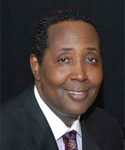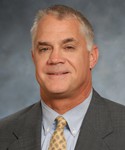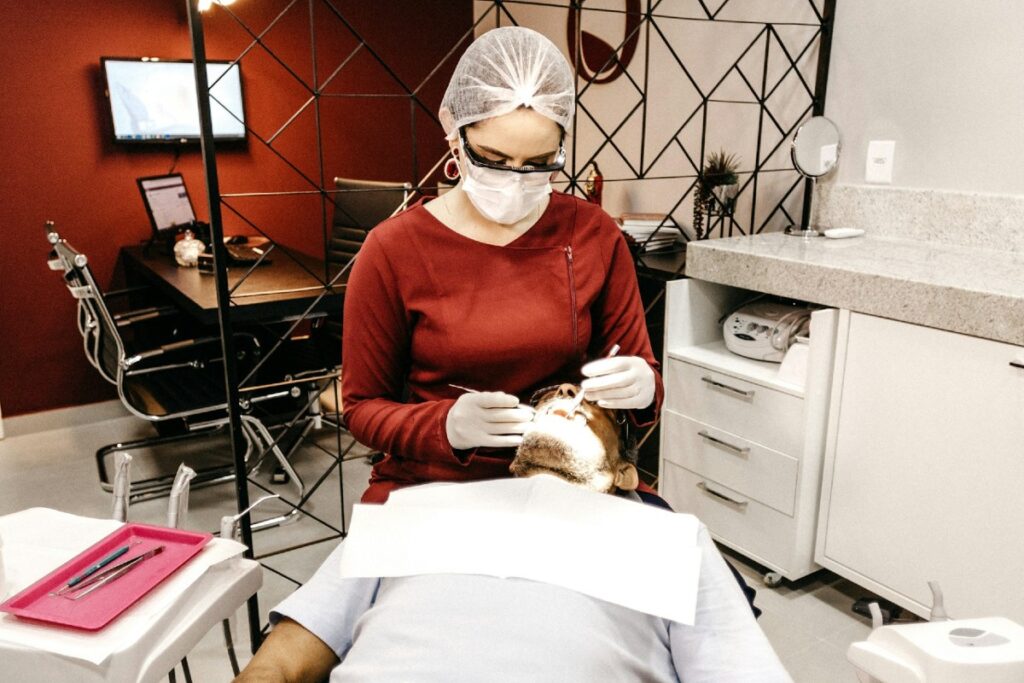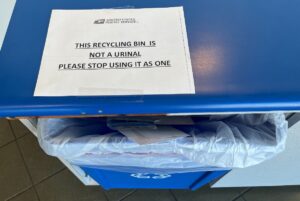STATEHOUSE REPORT | ISSUE 23.14 | April 5, 2024
BIG STORY: Legislature demands reform after accounting scandals
MORE NEWS: Mobile cosmetology bill passes Senate
LOWCOUNTRY, Ariail: Bible salesman
COMMENTARY, Brack: Perhaps the 2024 election will bring us closer
SPOTLIGHT: SC Clips
OUR TURN: New study committee could improve health in South Carolina
MYSTERY PHOTO: Mountains
FEEDBACK: Pass legislation to support student-athletes
Legislature demands reform after accounting scandals

By Jack O’Toole | Angry state lawmakers are moving forward with major financial reform efforts after embarrassment from two whopping accounting scandals involving more than $5 billion in miscounted, misallocated and just plain mysterious state funds.
While many South Carolina taxpayers may be questioning the competence of their chief elected financial officials, state lawmakers want a constitutional change that voters are likely to see on their ballot this November.

Lawmakers say the goal in each chamber is to professionalize more of the state’s principal accounting positions by removing as much politics as possible from the process.
“Politics really shouldn’t come into play,” Berkeley County Republican Sen. Larry Grooms told reporters April 2. “People prefer their accountants not be crusaders.”
An explainer: How we got here
The now-intertwined scandals began in February of last year when then-Comptroller General Richard Eckstrom told a Senate panel that the state had $3.5 billion dollars less than its official balance sheet showed. An ensuing Senate investigation determined the comptroller’s office had been double-counting money going to state colleges and universities for a decade. And while the error did not affect the annual budget – no money was actually missing – it did mislead bond rating agencies about the state’s cash reserves. Hence, the state had a bunch of egg on its face.
Eckstrom, then in his sixth term, resigned about a month later, before the General Assembly might have formally removed him from office.

The second scandal shoe dropped last month after newly-appointed Comptroller Brian Gaines informed senators that he’d discovered a state account with $1.8 billion in unidentified and unallocated funds. Put simply, Gaines explained, state officials couldn’t say with certainty where the money came from or who it belongs to. And this time, the finger of blame appeared to point not at the comptroller’s office, but at four-term State Treasurer Curtis Loftis.
This snafu led to fireworks at a marathon April 2 Senate Finance subcommittee hearing during which senators grilled Loftis for more than six hours over his handling of the account.
“Mr. Loftis has abrogated his responsibility as a state treasurer,” Grooms, who is leading the Senate investigation, said at the hearing. “He has breached the public trust.”
For his part, Loftis claimed his role as treasurer was to act as the state’s banker, not its accountant. And as such, he said, he did his job by ensuring the money was kept safely in the account and properly accruing interest. But he did not and could not know anything about the origins or proper destinations of the money itself.
“I’m being blindsided by complex questions, and they’re being asked in the most leading of manners,” Loftis said. “There’s absolutely no way that the people who elected me can expect a fair hearing under these circumstances.”
But committee members weren’t having it.
“Apparently, Mr. Loftis has lost control of the state treasury,” Grooms declared at the close of the day’s proceedings.
Reforming the system
There are currently two major reform initiatives, one in each chamber. The first, H. 5016, which passed the House 111-0 on March 28 and is now in front of the Senate Finance Committee, would make the state’s unelected auditor – essentially the state’s financial watchdog – an independent position appointed by the governor and approved by the Senate.
Currently, the auditor reports to a state panel that includes the treasurer and the comptroller general – two of the people whose work the auditor is supposed to be watching.

“I think that’s a really good bill,” Sen. Darrell Jackson, D-Richland, and a longtime member of the Finance Committee told Statehouse Report. “The more we keep politics and politicians out of things like that, the better off our state will be.”
The second initiative is a Senate resolution to ask voters whether to remove the comptroller general from the state constitution as an elected office and allow the governor to appoint the position with the approval of the Senate. The resolution passed the Senate unanimously on March 26. If it receives a two-thirds vote in the House, voters will see the matter on their ballots this fall.
Charleston GOP Sen. Chip Campsen, who introduced the Senate resolution,said he believes it’s no accident that both reform initiatives involve strengthening the governor’s office.
“Not talking about Governor McMaster, but just structurally, constitutionally, we have a very weak chief executive,” he told Statehouse Report in an April 3 interview. “And I think it’s important that we have an executive vested with sufficient power to keep the other two branches in check.”

The problem, Campsen went on to explain, is fundamental to the state’s 1895 constitution, which established legislative supremacy over the governor and the courts, in violation of the checks-and-balances system preferred by the nation’s founders. It imposed this supremacy in part by saddling the governor with independently elected cabinet officials like the comptroller general, and with executive branch employees like the auditor who report to independent boards.
“The framers’ vision, and it’s brilliant, was to diffuse power equally between the three branches of government, so you balance ambition against ambition,” he said. “It’s about the discipline of having your power checked by the power of others.”
Asked whether that logic could lead the legislature to go further than the auditor and the comptroller general, Campsen’s answer suggested that voters should stay tuned.
“Well, there’s good reason to look at these offices just for restructuring purposes,” he said. “And there’s also reason to do it for cause, which is clearly the case with the comptroller. That’s still questionable, I guess, in the case of the treasurer. But that process is ongoing before our eyes.”
- Jack O’Toole reports on statewide issues for Statehouse Report and the Charleston City Paper. Have a comment? Send to: feedback@statehousereport.com.
Mobile cosmetology bill passes Senate

By Jack O’Toole | A Charleston businesswoman whose fight to legalize mobile cosmetology services in South Carolina made headlines earlier this year is celebrating a major, though still incomplete, victory in the state Senate.
“I’m really happy,” Ring My Belle owner Megan O’Brien told Statehouse Report after the Senate unanimously passed its mobile cosmetology bill on April 4, clearing the measure for consideration in the House. “Though I do wish the whole thing had gotten through.”
As passed, the bill would for the first time make it legal for licensed cosmetologists to provide basic beauty services such as hair and makeup to clients at their homes or businesses. However, due to an amendment, the bill does not allow mobile blow-drying services – a fact that O’Brien calls “mystifying.”
“I still fail to see why blow-drying poses any kind of danger or threat to society,” O’Brien said.
Charleston Republican Sen. Sandy Senn, an original sponsor of the bill, agrees.
“Please,” Senn said, a note of exasperation clear in her voice. “Tell me why we need to regulate blow-drying hair.”
Senn said she’s been told the amendment was made at the request of a single Lowcountry barber. South Carolina barbers have been allowed to offer mobile services, including blow drying, since 2021.
“The barbers are mainly men and they don’t like having the competition from hairdressers,” Senn said. “And they can get a lot of things passed up here.”
In other recent headlines:
![]() S.C. senators take up controversial energy bill. Utilities, conservation groups and other stakeholders are all in agreement: South Carolina needs to expand its energy capacity to keep up with its growth. The question is how it is done.
S.C. senators take up controversial energy bill. Utilities, conservation groups and other stakeholders are all in agreement: South Carolina needs to expand its energy capacity to keep up with its growth. The question is how it is done.
S.C. children shouldn’t be locked up for acting up, skipping class, lawmakers say. South Carolina is the only state that detains children for so-called status offenses, or crimes that only apply to youth under 18, including running away, skipping school or generally being hard to manage.
Republicans call for voting change to S.C. constitution. Democrats say there’s no need. Voters could be asked in November whether a single word should change in the South Carolina constitution to specify that “only” citizens can vote — a revision Democrats called completely unnecessary.
S.C. Senate confirms new SCDOT secretary of transportation. State senators confirmed Justin Powell Tuesday to become the next secretary of transportation for the South Carolina Department of Transportation after former secretary Christy Hall retired in March.
Proposal for hefty fines for advertising vapes to children passes S.C. Senate. E-cigarette manufacturers could not advertise any of their products to children, and only certain vapes would be available at stores under legislation the Senate approved unanimously Tuesday.
S.C. legislature to fund dementia care coordinators. The South Carolina Chapter of the Alzheimer’s Association is lobbying to get $1.1 million added to the South Carolina Department of Aging’s budget to fund 10 dementia care specialists.
S.C.’s ‘sister senators’ among those facing primary opposition. Three of South Carolina’s “sister senators” will face GOP primary challengers in June. Meanwhile, 20 other legislators, including Independent Columbia Sen. Mia McLeod, I-Richland, will not seek reelection this fall.
- Have a comment? Send to: feedback@statehousereport.com.
Bible salesman

Award-winning cartoonist Robert Ariail generally has a biting or funny comment about the great state of South Carolina in his weekly cartoon. This week, Ariail takes on recent Bible sales by former President Donald Trump.
- Love the cartoon? Hate it? What do you think: feedback@statehousereport.com.
Perhaps the 2024 election will bring us closer

By Andy Brack | America’s traditional mom-and-apple-pie values appear to be in better shape than many talking heads and pundits decry, according to a big new national poll.
 That’s good – particularly in times of too much news about fissures for democracy, including former President Donald Trump’s criminal tribulations, current President Joe Biden’s and Trump’s ages, a do-nothing Congress and the U.S. Supreme Court’s continuing ethical gaffes.
That’s good – particularly in times of too much news about fissures for democracy, including former President Donald Trump’s criminal tribulations, current President Joe Biden’s and Trump’s ages, a do-nothing Congress and the U.S. Supreme Court’s continuing ethical gaffes.
This new Associated Press-NORC Center for Public Affairs Research poll of 1,282 people shows most Americans still agree on core national values.
“There’s a lot more convergence [about issues] than you might imagine,” University of Chicago political science professor Michael Alobertus told the AP.
When asked about the importance of certain bedrock American principles, freedoms and rights, an overwhelming majority of Americans responded these were extremely important or important to our national identity:
- The right of equal protection under law: 91%;
- The right to vote: 91%;
- Freedom of speech: 90%;
- The right to privacy: 88%;
Freedom of religion: 84%; and - The freedom to assemble peaceably, 83%.
But in our polarized political environment where mass shootings are an almost daily occurrence, it wasn’t surprising how only 54% of those polled said they found the right to keep and bear arms to be important.
“The results, which included perspectives on a number of different freedoms and rights, have only small variances between Republicans and Democrats except on the right to bear arms, which Republicans are more likely to see as core to the nation’s identity,” said a story about the poll. “The overall findings are striking because they come at a time of extreme partisanship when political agreements seem rare and concerns are heightened over the potential for violence during a volatile presidential election year.”
Other findings: Three in four Americans believe a democratically-elected government is extremely or very important, while about 80% believe the same about Americans having a chance to get good jobs and realize the American dream.
As you might expect, the poll didn’t have only good news. More Americans – about half – said they thought the country’s democracy was functioning poorly, compared to the third who thought it was functioning well. Also, younger Americans were not as likely to have as rosy of a view of traditional American values as older Americans.
Impact in South Carolina
These attitudes of supporting American democracy, particularly after the turmoil during and after the Jan. 6 insurrection at the U.S. Capitol, may be impacting South Carolina.
Hundreds of candidates filed for Statehouse, local government, Congress and other offices in the last half of March. In June, some 526 candidates will meet in primaries across the state. Even more will face opponents from other parties in November.
In Charleston County, for example, 16 women candidates filed, spurred on in large part by the Supreme Court’s decision to overturn the landmark Roe v. Wade abortion decision. During a multi-candidate press conference this week, Charleston Democrats seemed more energized than in years.
“We are the ones working for the people,” said Democratic state Rep. Spencer Wetmore of Folly Beach. “We are the ones that make progress. Unfortunately, the Republicans have lost touch with the people of South Carolina.”
At the Statehouse, all 170 legislative seats are up for grabs. The 124-seat House, where Republicans hold a 2-1 majority over Democrats, is sure to remain in Republican control. But the Senate, where Republicans enjoy a similar majority, may be more in play as Democrats would have to flip just eight seats to gain control.
The Senate’s only independent, Mia McLeod of Columbia, decided not to run for reelection. But four other “sister senators” who won a national award for courage in trying to stall a six-week abortion ban, are running. The three Republican women – Sandy Senn of Charleston, Katrina Shealy of Lexington County and Penny Gufstason of Camden – face tough primary challengers.
There will be lots of good back and forth during the election season. But if everybody is pulling for America and our shared bedrock principles, we’ll be O.K.
Andy Brack is editor and publisher of Statehouse Report and the Charleston City Paper. Have a comment? Send to: feedback@statehousereport.com.
SC Clips
 Statehouse Report is brought to you weekly at no cost thanks to our underwriters. In the spotlight today is SC Clips, an affordable, daily information digest that provides you with the South Carolina news you need every business day. Subscribers receive a daily email news round-up before 10 a.m. that provides a link to each day’s edition of SC Clips.
Statehouse Report is brought to you weekly at no cost thanks to our underwriters. In the spotlight today is SC Clips, an affordable, daily information digest that provides you with the South Carolina news you need every business day. Subscribers receive a daily email news round-up before 10 a.m. that provides a link to each day’s edition of SC Clips.
Each issue (click for sample) provides a concise summary of dozens of the latest newspaper and television reports of news with statewide impact, politics, business and local stories. Readers also are linked to key opinions by South Carolina’s editorial writers.
- Learn more about this great news service that will save you time — which saves you money.
- Get a trial run at no cost.
New study committee could improve health in S.C.

By Rob Goren and Dr. Joseph Dill | For far too long, South Carolina has ranked among America’s least healthy states. Moving forward, it is critical leaders come together to find solutions that place us on a path to a healthier future.
That’s why we’re encouraged to see that State Senator Tom Davis introduced S. 855, a bill creating a study committee to review the health care market in South Carolina, including regulations, practices, access to care, and more. While we’re pleased the bill calls for an oral health leader on the study committee’s non-voting advisory board, we urge the inclusion of oral health care at every phase of this review to improve both the oral and overall health of all South Carolinians.
Oral health is critical to overall health, and polling shows 91 percent of South Carolinians agree. Poor oral health can be an indicator of several chronic diseases, including diabetes and heart disease, which is why its inclusion throughout the committee’s study is so essential. In fact, we recently convened several of South Carolina’s most experienced health care experts to discuss opportunities to collaborate on some of the state’s most significant health care challenges. During our discussion, a consistent theme arose: The lack of access to oral health care, and its impact on overall health.
A large majority of counties in South Carolina are designated as dental health professional shortage areas, making it even harder for those in rural communities to seek and access care. It is becoming increasingly challenging to recruit and retain rural health providers, especially those able to identify and treat oral health issues. As the study committee has the potential to increase the number of health care professionals practicing in the state, if we’re to improve the overall health of all South Carolinians, oral health experts must be included in all phases of the study committee’s work.
Additionally, if we’re to expand access to care, we need to meet patients where they are – and patients in rural and underserved communities often live far from dental and primary care practices, preventing them from easily managing their oral and overall health. That’s why we believe the expansion of telehealth, including teledentistry, is a critical component in supporting rural health care. We must ensure South Carolina is evolving its telehealth and broadband infrastructure to better serve hard-to-reach communities and to enhance care access – something the creation of this study committee will help facilitate.
Further, to advance whole-person health, medical and dental professionals must establish effective communication channels to promote information sharing and collaboration. Since poor oral health can increase the risk of chronic diseases, and inversely, chronic diseases can result in oral health complications, it is critical that physicians and dentists collectively identify oral and systemic health conditions in order to develop comprehensive care plans.
Research sponsored by the Delta Dental Institute found that interprofessional communication through medical-dental integration enhances the patient experience, advances patient-centered care, and increases positive health outcomes. The advancement of a bill like S. 855 could make this process more seamless for South Carolinians, as the study committee aims to eliminate rigid requirements for engagement between different health professions.
As this bill moves through the state legislature, we must ensure that oral health, which often goes unrecognized in broader health programs, is included as a core part of the study committee’s work. As a trusted partner working to improve care outcomes for all, we believe this legislation’s passing, and the resulting study committee, will be an important step in elevating the importance of oral and overall health across The Palmetto State.
Rob Goren is president and CEO of Delta Dental of South Carolina. Dr. Joseph Dill is the head of dental science at the Delta Dental Institute in Chicago.
Mountains

This may look familiar, but where and what is it? Send your name, hometown and guess to: feedback@statehousereport.com.
 No one completely identified last week’s photo, “Oddest brain teaser ever,” other than guessing it was in a Charleston post office. (Which it was, but no one guessed the one on East Bay Street.) Regardless, it should have been a little amusing and disconcerting at the same time.
No one completely identified last week’s photo, “Oddest brain teaser ever,” other than guessing it was in a Charleston post office. (Which it was, but no one guessed the one on East Bay Street.) Regardless, it should have been a little amusing and disconcerting at the same time.
- Send us a mystery picture. If you have a photo that you believe will stump readers, send it along (but make sure to tell us what it is because it may stump us too!) Send to: feedback@statehousereport.com and mark it as a photo submission. Thanks.
Pass legislation to support student-athletes
To the editor:
![]() It’s time for South Carolina to take action and pass House Bill 4957. This bill is crucial for our state’s college athletic programs to support their student-athletes with name, image and likeness (NIL) opportunities. With other states passing similar laws, South Carolina cannot afford to fall behind.
It’s time for South Carolina to take action and pass House Bill 4957. This bill is crucial for our state’s college athletic programs to support their student-athletes with name, image and likeness (NIL) opportunities. With other states passing similar laws, South Carolina cannot afford to fall behind.
The NCAA’s lack of a clear, equitable NIL policy has left states to enact their own laws so in-state institutions are not disadvantaged. This bill would allow athletic departments to play an active role in NIL deal facilitation, providing guidance to student-athletes that outside parties cannot. Coaches know their athletes best and want to assist them in capitalizing on NIL while maintaining competitiveness.
As a supporter of the successful women’s golf and basketball programs at the University of South Carolina, I can attest to the value of empowering coaches like Kalen Anderson and Dawn Staley to support their players. Passing this bill would equip our college athletics to remain competitive in the era of NIL.
Let’s not wait any longer. It is imperative that South Carolina empowers our college athletic programs to better support their student-athletes. Join me in helping our student athletes and coaches by showing your support for this NIL legislation. Through NIL deals, we can help show our female student athletes and coaches how much we support and appreciate them!
– Heather Smith, Columbia
Send us your thoughts
We encourage you to send in your thoughts about policy and politics impacting South Carolina. We’ve gotten some letters in the last few weeks – some positive, others nasty. We print non-defamatory comments, but unless you provide your contact information – name and hometown, plus a phone number used only by us for verification – we can’t publish your thoughts.
- Have a comment? Send your letters or comments to: feedback@statehousereport.com. Make sure to provide your contact details (name, hometown and phone number for verification. Letters are limited to 150 words.
- ORDER NOW: Copies are in Lowcountry-area bookstores now, but if you can’t swing by, you can order a copy online today.
- Now available as an e-book!
ABOUT STATEHOUSE REPORT
Statehouse Report, founded in 2001 as a weekly legislative forecast that informs readers about what is going to happen in South Carolina politics and policy, is provided to you at no charge every Friday.
- Editor and publisher: Andy Brack, 843.670.3996
Donate today
We’re proud to offer Statehouse Report for free. For more than a dozen years, we’ve been the go-to place for insightful independent policy and political news and views in the Palmetto State. And we love it as much as you do.
But now, we can use your help. If you’ve been thinking of contributing to Statehouse Report over the years, now would be a great time to contribute as we deal with the crisis. In advance, thank you.
Buy the book
Now you can get a copy of editor and publisher Andy Brack’s We Can Do Better, South Carolina! ($14.99) as a paperback or as a Kindle book ($7.99). . The book of essays offers incisive commentaries by editor and publisher Andy Brack on the American South, the common good, vexing problems for the Palmetto State and interesting South Carolina leaders.
More
- Mailing address: Send inquiries by mail to: P.O. Box 21942, Charleston, SC 29413
- Subscriptions are free: Click to subscribe.
- We hope you’ll keep receiving the great news and information from Statehouse Report, but if you need to unsubscribe, go to the bottom of the weekly email issue and follow the instructions.
- Read our sister publication: Charleston City Paper (every Friday in print; Every day online)
- © 2024, Statehouse Report, a publication of City Paper Publishing, LLC. All rights reserved.















 We Can Do Better, South Carolina!
We Can Do Better, South Carolina!